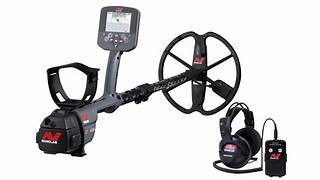Metal detectors
Metal detectors are electronic devices that detect the presence of metallic objects buried underground or hidden in various materials. They work on the principle of electromagnetic induction, which allows them to generate and detect electromagnetic fields. When a metal object comes into the detector's range, it disturbs the electromagnetic field, triggering an audible or visual signal to alert the user about the metal's presence.
Metal detectors have a wide range of applications and are used in various fields:
Treasure Hunting: Hobbyists and enthusiasts use metal detectors to search for coins, jewellery, relics, and other valuable objects buried in the ground.
Security Screening: Metal detectors are used in security checkpoints at airports, government buildings, schools, and events to identify potentially dangerous items like weapons and explosives.
Archaeology: Archaeologists use metal detectors to locate and unearth historical artifacts and archaeological sites.
Construction and Utilities: Metal detectors are used in construction sites and utility companies to locate underground pipes, cables, and other buried infrastructure to avoid accidental damage.
Industrial Applications: In manufacturing facilities, metal detectors are employed to inspect products for metal contamination and ensure the safety and quality of the end product.
Geophysical Surveys: Geologists and geophysicists use specialized metal detectors to conduct surveys for mineral deposits, buried metal structures, and geological anomalies.
Beachcombing: Metal detectors are used by beachgoers to search for lost jewelry, coins, and other items that may have been dropped in the sand.
Metal detectors come in various types and designs, including:
Beat Frequency Oscillation (BFO) Detectors: Simple and affordable detectors suitable for beginners. They use two coils—one to transmit and the other to receive signals.
Very Low-Frequency (VLF) Detectors: The most common type, suitable for a wide range of applications. They use two coils with specific frequencies to detect metals and discriminate between different types.
Pulse Induction (PI) Detectors: Ideal for deep searches in challenging environments like saltwater beaches. They send short bursts of current through a coil, creating a magnetic field that responds to metal objects.
Multi-Frequency Detectors: These detectors can use multiple frequencies to improve target identification and depth detection.
Overall, metal detectors are valuable tools in various industries and recreational activities, helping to uncover hidden treasures, enhance security, and aid in research and exploration.




